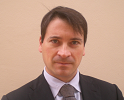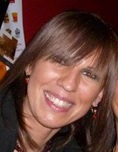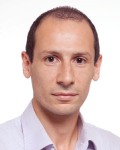Studying at the University of Verona
Here you can find information on the organisational aspects of the Programme, lecture timetables, learning activities and useful contact details for your time at the University, from enrolment to graduation.
Academic calendar
The academic calendar shows the deadlines and scheduled events that are relevant to students, teaching and technical-administrative staff of the University. Public holidays and University closures are also indicated. The academic year normally begins on 1 October each year and ends on 30 September of the following year.
Course calendar
The Academic Calendar sets out the degree programme lecture and exam timetables, as well as the relevant university closure dates..
| Period | From | To |
|---|---|---|
| 1° SEM LM | Oct 1, 2022 | Mar 15, 2023 |
| 1° e 2° SEM LM | Oct 1, 2022 | Sep 30, 2023 |
| 2° SEM LM | Mar 1, 2023 | Sep 30, 2023 |
Exam calendar
Exam dates and rounds are managed by the relevant Medicine Teaching and Student Services Unit.
To view all the exam sessions available, please use the Exam dashboard on ESSE3.
If you forgot your login details or have problems logging in, please contact the relevant IT HelpDesk, or check the login details recovery web page.
Should you have any doubts or questions, please check the Enrollment FAQs
Academic staff
 +39 045 565897
+39 045 565897
 christian.geroin@univr.it
christian.geroin@univr.it
 loredana.pancheri@univr.it
loredana.pancheri@univr.it
 alessia.pardo@univr.it
alessia.pardo@univr.it
 rocco.tabbi@aovr.veneto.it
rocco.tabbi@aovr.veneto.it
Study Plan
The Study Plan includes all modules, teaching and learning activities that each student will need to undertake during their time at the University.
Please select your Study Plan based on your enrollment year.
1° Year
| Modules | Credits | TAF | SSD |
|---|
2° Year activated in the A.Y. 2023/2024
| Modules | Credits | TAF | SSD |
|---|
| Modules | Credits | TAF | SSD |
|---|
| Modules | Credits | TAF | SSD |
|---|
| Modules | Credits | TAF | SSD |
|---|
Legend | Type of training activity (TTA)
TAF (Type of Educational Activity) All courses and activities are classified into different types of educational activities, indicated by a letter.
Gestione di team interprofessionali - ETICA DELLE RELAZIONI (2022/2023)
Teaching code
4S010641
Teacher
Credits
2
Language
Italian
Scientific Disciplinary Sector (SSD)
M-FIL/03 - MORAL PHILOSOPHY
Period
1° SEM LM dal Oct 1, 2022 al Mar 15, 2023.
Location
VERONA
To show the organization of the course that includes this module, follow this link: Course organization
Program
Il modulo interrogherà la portata etica della relazione intersoggettiva, con particolare attenzione al contesto sanitario e al campo d'intervento degli operatori.
Si presenteranno le dinamiche che a livello immaginario e simbolico possono favorire o ostacolare la relazione interpersonale, orientando il percorso verso la condivisione di una "etica del tatto" che tenga conto della dimensione corporea e materiale del legame intersoggettivo.
La seconda parte del modulo entrerà più nel merito dell'etica della relazione all'interno delle dinamiche di gruppo, interrogando il lavoro in équipe e favorendo una sensibilità "clinica" per i contesti istituzionali.
Bibliography
Didactic methods
The lessons will alternate traditional frontal teaching with dialogical interaction with students, guided discussions, as well as reading and commenting texts collectively.
The traditional frontal lessons (first part of each lesson) will be videotaped and uploaded to the Moodle platform. The moments of interaction and discussion with the students will take place in the classroom and will not be videotaped.
Any change of the timetable will be communicated on the teacher's web page.
Learning assessment procedures
Exam’s modality:
The exam will be oral and will assess the level of competency of the themes and fundamental concepts addressed during the course. The questions will aim to highlight the students' critical-argumentative capacity, their ability to use texts autonomously, as well as the communication skills necessary to give back with rigor and sufficient subjectivation the problems faced in class and in the books present in the bibliography.
The vote is expressed in thirtieths.
The examination procedures are the same for students attending and not attending.
Exam language
Italiano
Career prospects
Module/Programme news
News for students
There you will find information, resources and services useful during your time at the University (Student’s exam record, your study plan on ESSE3, Distance Learning courses, university email account, office forms, administrative procedures, etc.). You can log into MyUnivr with your GIA login details: only in this way will you be able to receive notification of all the notices from your teachers and your secretariat via email and soon also via the Univr app.
Stage
Documents
| Title | Info File |
|---|---|
|
|
pdf, it, 705 KB, 24/02/23 |
|
|
msword, it, 200 KB, 24/02/23 |
|
|
octet-stream, it, 1298 KB, 24/02/23 |
|
|
msword, it, 104 KB, 24/02/23 |
Orario lezioni
Documents
| Title | Info File |
|---|---|
|
|
octet-stream, it, 1294 KB, 21/10/22 |
|
|
pdf, it, 185 KB, 12/03/24 |
|
|
pdf, it, 189 KB, 03/04/24 |
Student login and resources
Appelli d'esame
Documents
| Title | Info File |
|---|---|
|
|
octet-stream, it, 1293 KB, 22/05/23 |
|
|
pdf, it, 49 KB, 16/04/24 |
Prova Finale
Per essere ammessi alla prova finale occorre avere conseguito tutti i crediti nelle attività formative previste dal piano degli studi, compresi quelli relativi all’attività di tirocinio. La prova finale consiste nella redazione e dissertazione, davanti ad una Commissione di esame, di una tesi elaborata in modo originale sulla base di un lavoro di natura sperimentale o teorico-applicativa riguardante l’approfondimento di aspetti manageriali, di ricerca, formativi e di metodologie professionali avanzate specifiche del proprio ambito professionale. Lo studente avrà la supervisione di un docente del Corso di Laurea, detto Relatore, ed eventuali correlatori anche esterni al Corso di Laurea. Scopo della tesi è quello di impegnare lo studente in un lavoro di formalizzazione, progettazione e di ricerca, che contribuisca sostanzialmente al completamento della sua formazione professionale e scientifica. Il contenuto della tesi deve essere inerente a tematiche o discipline strettamente correlate agli obiettivi della Laurea Magistrale. La valutazione della tesi sarà basata sui seguenti criteri: livello di approfondimento del lavoro svolto e rigore scientifico, contributo critico del laureando, accuratezza della metodologia adottata, significatività della tematica sviluppata. Il punteggio finale di Laurea è espresso in centodecimi con eventuale lode e viene formato dalla somma della media ponderata rapportata a 110 dei voti conseguiti negli esami di profitto, con la valutazione ottenuta nella discussione della Tesi. La commissione di Laurea potrà attribuire ulteriori punti anche in base a: a. presenza di eventuali lodi ottenute negli esami sostenuti; b. stage presso Servizi Sanitari di altri Paesi fino a 1 punto aggiuntivo; c. laurea entro i termini della durata normale del corso 1 punto aggiuntivo. Il punteggio minimo per il superamento dell'esame finale è di 66/110. Qualora la somma finale raggiunga 110/110, la Commissione di Laurea può decidere l'attribuzione della lode, se il parere è unanime. Il Collegio Didattico pubblica annualmente sul sito del Corso di studio le linee guida per la stesura e le indicazioni dei vari adempimenti di natura amministrativa e organizzativa.












